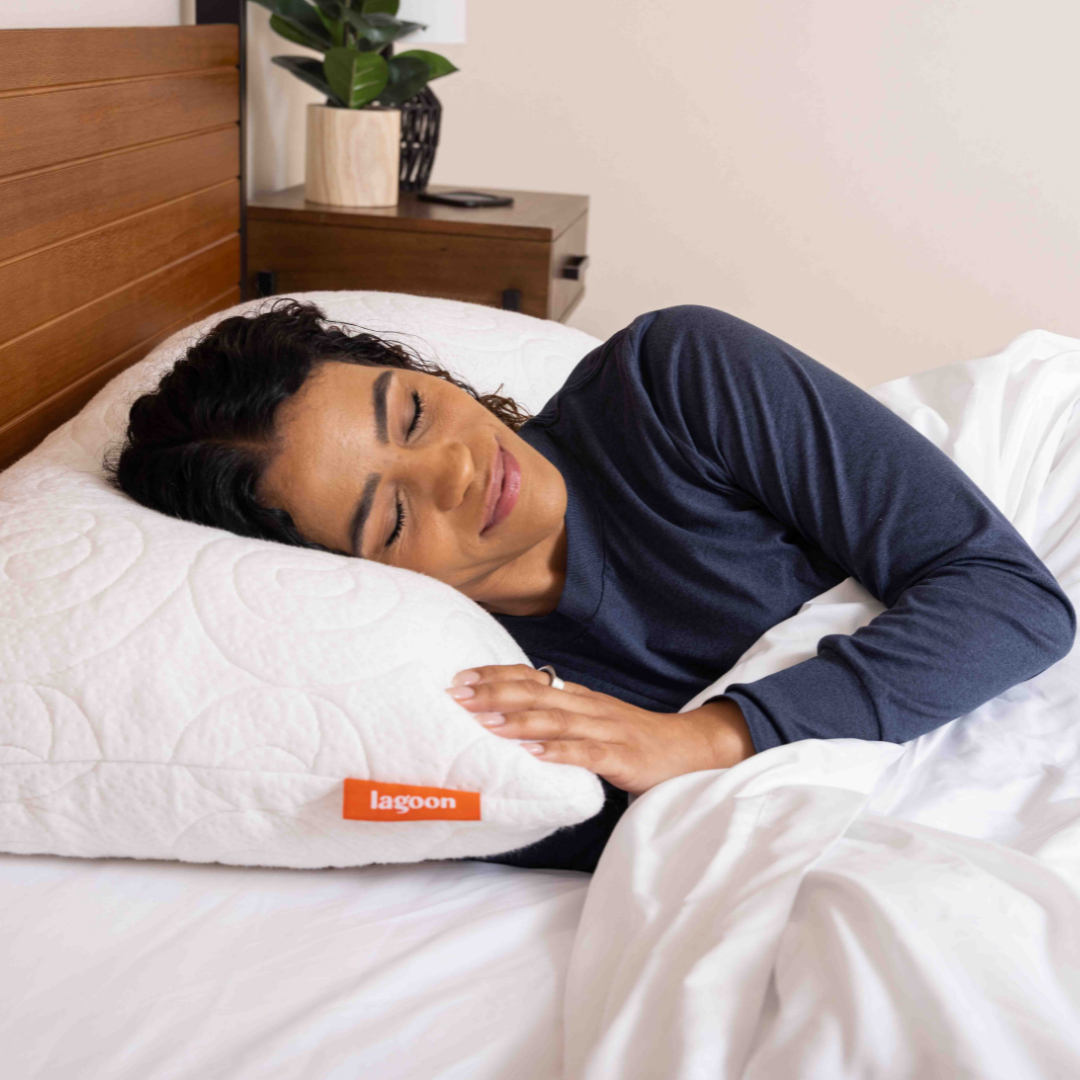Pillows, like mattresses, come in all shapes, sizes, and degrees of firmness. And, just as it's important to look for a mattress that's comfortable and supportive for your body, the same is true for pillows.
The type of pillow you choose to sleep on can have an impact on your neck pain, allergies, asthma, the delicate skin on your face, head, and eyelids, and even snoring.
But finding the proper pillows can seem bewilderingly complex -- there are dozens of them to choose from in a dizzying array of shapes and sizes. So how do you know which one is going to be best for your overall health and well-being?
Answer these few questions to learn if it’s time to change your pillow.
Are you experiencing neck pain?
When you wake up in the morning, are you feeling tight or sore in your neck? According to the experts at Harvard Health Publishing, that could very well be the sign of a pillow that is too soft or too firm.
If you are a side sleeper, you may be using a pillow that is too soft and not giving your neck the support it needs during the night.
On the other hand, if you’re a stomach sleeper waking up with pain, you may be using too firm of a pillow and hyperextending your neck even further while you sleep
Our recommendation at Lagoon for side sleepers or versatile sleepers (change positions through the night) is a medium-soft pillow like these, while stomach sleepers should keep it soft with these choices.
Are you getting enough, quality sleep at night?
If you find yourself tossing and turning each night on an uncomfortable pillow, it’s probably time for a change.
A bad pillow can contribute to not getting enough sleep or not sleeping through the night, if it's not truly a "comfortable" fit for you. Common symptoms would be taking a long time to get comfortable and initially fall asleep or regularly waking up to change positions. These ultimately lead to you not feeling refreshed and functional throughout your day.
Finding the right pillow means you can get comfortable more easily, and fall asleep quicker. As you're eliminating any undue strain or pressure on your neck or back, this also reduce the likelihood of you needing to wake up and change positions frequently though the night.
This ultimately means that your'e able to get good, healthy and complete sleep cycles of deep and REM sleep.
Do you have allergies at night?
How long has it been since you replaced your pillow? If your allergies are acting up or your skin keeps breaking out, the answer to that question might be ”way too long.”
According to the Sleep Foundation, “An old pillow can accumulate allergens like dust mites, fungus, mold, and pet dander.”
In addition to allergens, your pillow has collected face and hair oils, sweat, drool, and more that could be the cause of skin breakouts or rashes.
Though it can vary, it is recommended to replace your pillow anywhere from 6 months to 2 years. If you can’t remember when you bought it, that might be a sign it’s time.
All Lagoon pillows come with a bamboo and polyester blended shell that's both hypoallergenic and machine washable.
The bottom line.
If you are experiencing any soreness, or spend time tossing and turning, your pillow may be the problem, and it's worth taking a look at making an upgrade.
Here at Lagoon we're committed to making this journey as easy for you as possible. Take our pillow match quiz today and start getting better sleep tomorrow.
For more information, you can read Harvard’s article “Is Your Pillow Hurting Your Health” here.







